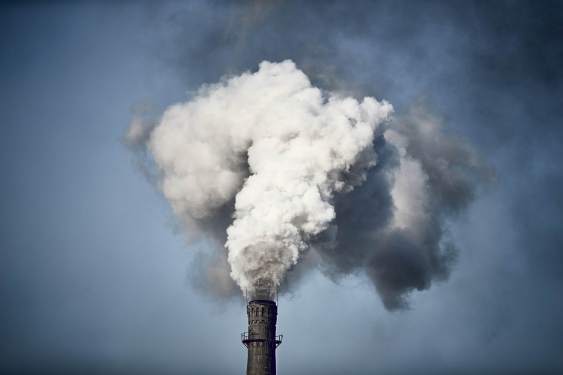Former Vice President Al Gore’s latest project gives polluters nowhere to hide. The nonprofit Climate Trace, which Gore co-founded, has launched a new tool that uses artificial intelligence to track fine particulate pollution from more than 660 million sources worldwide.
Many people understand that burning fossil fuels warms the planet, but fewer realize it also creates fine particulate matter, known as PM2.5, which is responsible for as many as 10 million deaths every year.
Gore explained that it has been difficult for people to get precise information about the pollution they are breathing, including where it comes from and in what quantities. Climate Trace was originally established as a nongovernmental project to track global greenhouse gas emissions. The group began developing this new tool after Gore’s experience working with residents in Memphis, Tennessee, who were trying to block the construction of a crude oil pipeline. During that effort, he observed how plumes from a nearby refinery drifted over neighborhoods, which led him to ask the Climate Trace coalition if they could track these pollutants on a global scale.
The result provides public access to raw data on major polluters and visualizations showing where PM2.5 pollution drifts near large cities. Gore stated that these plume visualizations will eventually be available worldwide.
While people have intuitively understood the ill effects of soot for years, Climate Trace and its partners at Carnegie Mellon University have only recently been able to compile global data into a sensible and scientifically defensible format. Gore noted that tracking 662 million sites worldwide was unimaginable before the advent of AI, which has demonstrated an extraordinary capacity for such complex tasks.
Scientists have recently come to appreciate the wide-ranging health effects of fine particulate pollution. Beyond its known role in lung cancer and heart disease, research over the last decade has shown that exposure to PM2.5 increases the risk for a host of other serious conditions. These include low birth weight, kidney disease, Parkinson’s disease, Alzheimer’s disease, dementia, and type 2 diabetes. Alarmingly, even at legally permitted levels, this pollution causes tens of thousands of excess deaths in the United States each year.
Much of the foundational research into the health impacts of PM2.5 was pioneered by Joel Schwartz, the scientist whose work decades ago led to the ban on leaded gasoline. Gore hopes that greater awareness of the health effects of fossil fuels will spur broader action, similar to the movement that ended the use of leaded gasoline. He believes this new understanding creates conditions that could accelerate the transition away from carbon-intensive facilities and build the political support needed for converting them to cleaner technologies.

